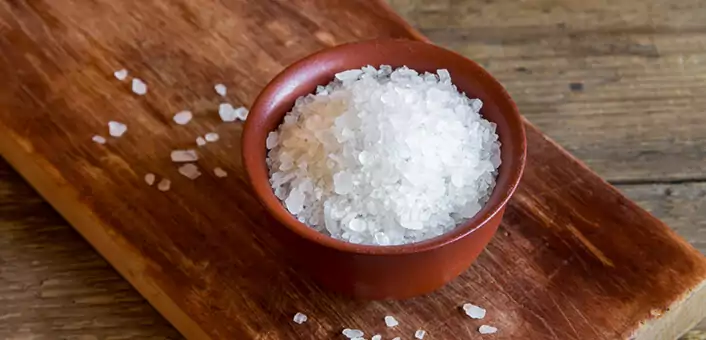PCOS test is based on the Rotterdam criteria for diagnosing PCOS.

Living Well
We are always told to eat less salt. It raises your blood pressure, which, in turn, can lead to diabetes and heart attacks. Salt is said to be damaging to the kidneys. Too much salt leads to bloating. Etcetera, etcetra. The ’why salt is your enemy’ list is endless.
Unfortunately, no one talks about two crucial things. 1) Has our salt consumption increased over the years, so that we can link salt intake to the increased hypertension in society and 2) can having lesser salt do us any harm?
The average American consumes around 1 and a half teaspoons to 3 teaspoons of salt a day. This number hasn’t changed in the last several decades. And yet, incidence of high blood pressure and cardiac disease has increased over the same period. In comparison, the Japanese, take in 25% more salt per day and yet have one of the highest life expectancies in the world and a far a lower risk of heart disease than most developed nations.
So, what are we missing here? What does salt do for us and can having too little of it do harm?
Salt is the biggest dietary source of sodium, and the words “salt” and “sodium” are often used interchangeably. Some varieties of salt also contain traces of other minerals like calcium, potassium, iron and zinc. Iodine is often added to table salt. The essential minerals in salt act as important electrolytes in the body. They help with fluid balance, nerve transmission and muscle function.
Restricting salt very severely can lead to impaired insulin sensitivity. This was shown in a startling Harvard Medical School study.
Salt is critical to digest food properly. Why? Salt is sodium chloride. Stomach acid is hydrochloric acid. You need the salt to create the hydrochloric acid, otherwise, you will suffer from poor digestion.
Salt is absolutely critical to make your bone structure firm. One of the big triggers for osteoporosis is shortage of salt and water in the body.
Without salt, none of the information processing and communication that happens within the brain can take place. What’s more, salt also removes excess acidity from the cells in the body, especially the brain.
Salt is an effective antihistamine. It’s often missed out in the era of prescription drugs, but it’s been used for centuries as a natural allergy remedy. When you get a runny nose or experience a sore throat, put a little salt at the end of your tongue. Wait for it to get absorbed, don’t swallow. Your symptoms could dissolve rapidly, along with the salt. A bit of salt mixed into a glass of water even works for hay fever.
This is the kicker. Salt is very important for maintaining proper blood pressure and cardiac health. In a 2015 study, researchers examined 833 heart patients from including 130 patients who followed a sodium-restricted diet. They were matched against 130 patients who had no restrictions on salt intake. About 42 percent of heart failure patients following a low-sodium diet wound up dying or hospitalized for heart problems, compared to 26 percent of patients with no salt restrictions.
Natural sea salt contains 92 essential minerals, whereas refined salt, which is a by-product of the chemical industry contains only two elements, sodium and chlorine. While commercial salt is more convenient to access and buy, remember it has added chemicals and has been bleached to give you that beautiful shade of white. Refined salt has virtually no health benefit – keep away from it.
An ideal consumption amount is about 1.5 to 3.5 teaspoons of salt, per day. Obviously, if you are more active or tend to sweat a lot, you may need to increase your salt intake.
Here’s the score as we see it. We know that all life emerged from the sea, including human beings. Salt is critical to so many body functions that when we restrict salt in our diet, it triggers a cascade of hormone reactions in the body, as it desperately to recuperate sodium from the waste stream. These hormones can make people vulnerable to heart disease and kidney problems.
So, go ahead. Don’t fear salt. Have it in the right quantity every day for all the wonderful minerals it contains.